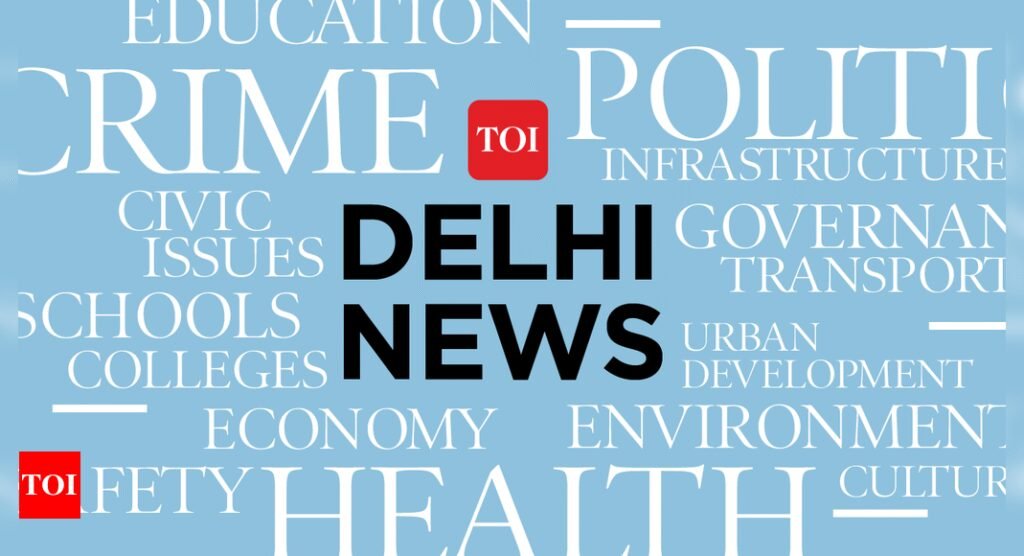New Delhi: Despite introducing a “third gender” option in admission forms a decade ago, the University of Delhi (DU) is yet to see a single enrolment in its regular programmes from a transgender student. Officials say this reflects the stigma and hesitation many transgender individuals still face when openly declaring their identity. Most either apply under binary categories or opt for alternative study modes like the School of Open Learning.To address this gap and build a more inclusive campus, DU has set up a Transgender Resource and Training Cell (TRTC) under the Department of Adult Continuing Education and Extension. The cell will assist students identifying as transgender with admissions, offer counselling, promote infrastructure reforms such as gender-neutral toilets, and coordinate sensitisation campaigns across colleges to reduce dropouts and increase representation.Professor Ashutosh Kumar, head of the department of Continuing Education, under which the cell will operate, said TRTC will facilitate implementation of the Transgender Persons (Protection of Rights) Act, 2019 and Rules, 2020. “We will support prospective and current students through admission-related assistance, name-change documentation, family or institutional challenges, and sensitisation workshops. The goal is to ensure equitable space for transgender persons,” he said.Kumar added that the cell also aims to sign MoUs with institutions like the National Institute of Social Defence, identify nodal officers in colleges, and connect with transgender communities through NGOs and HIV/AIDS organisations to create awareness about higher education opportunities at DU.Although the “third gender” option has been available on admission forms since 2015, uptake remains negligible. “We have received applications from around 100 such students so far, but either they did not want to officially identify themselves as transgender fearing discrimination, or they opted to study through the School of Open Learning,” Kumar said. In 2018, 10-15 transgender applicants made inquiries at the admission centre but none enrolled. Last year, one student joined a postgraduate programme but did not disclose their identity publicly. “Several students approach us privately but choose not to reveal their identity due to fear of stigma,” he added.A policy document prepared by the Transgender Resource Centre (TRC) highlights the urgency of institutional inclusion. According to the 2011 Census, India is home to 4.88 lakh transgender persons, including over 54,000 children under six. Delhi’s transgender population stands at 4,213, with a literacy rate of just under 63%.Despite constitutional protections, TRC notes that transgender individuals face persistent discrimination, school dropouts, and barriers to employment. A 2017 Unesco study revealed that 60% of transgender students experienced physical bullying, over 70% suffered from anxiety and depression, and more than half skipped classes. A third dropped out entirely, and only 18% of incidents were reported to school authorities—of which action was taken in just over half the cases. The document further links low education levels with high-risk livelihoods, such as sex work, which increases exposure to HIV and other STDs.To combat these entrenched issues, the university’s new transgender inclusion policy proposes a wide set of reforms spanning academic, administrative, infrastructural, and cultural spheres. Colleges will be encouraged to proactively identify transgender students, allowing them to submit affidavits and govt-authorised certificates to confirm identity. A confidential contact person in each institution will manage records and provide support. “Institutions must create a congenial academic ambience,” the policy notes.All official forms and certificates will include the “transgender” option, though students may still identify as male or female if they prefer. Dedicated admission helpdesks, reserved seats, scholarships, hostel fee waivers, and even free admission are being proposed to improve access.Counsellors across colleges will receive training to handle the specific mental health needs of transgender and gender non-conforming students, while also promoting broader acceptance among peers, staff, and families. Anti-ragging committees will be mandated to protect transgender students specifically, and a dedicated grievance cell will deal with complaints of bullying or abuse. Participation in events like Transgender Remembrance Day and National Transgender Day will be encouraged across campuses.Infrastructure changes include the establishment of gender-neutral restrooms, access to tailored healthcare, and dedicated hostel facilities. A central Transgender Resource Centre will also be created to coordinate Equal Opportunity Cells and counselling centres across DU.Academically, DU plans to integrate transgender issues into undergraduate and postgraduate syllabi—covering biological, sociological, psychological, political, and constitutional aspects. It will also promote courses on gender and sexuality and encourage research projects that centre transgender experiences.TRC will spearhead sensitisation drives for teaching and non-teaching staff, and guide institutions on best practices. The policy has been drafted under the guidance of professor Rajesh, coordinator of TRC, with contributions from transgender rights activist Amrita Sarkar.“Creating an enabling and respectful space for transgender persons is not just about access—it’s about dignity, rights, and the ability to thrive,” said Professor Kumar. “Through this cell and policy, we want to ensure DU becomes a truly inclusive space.


